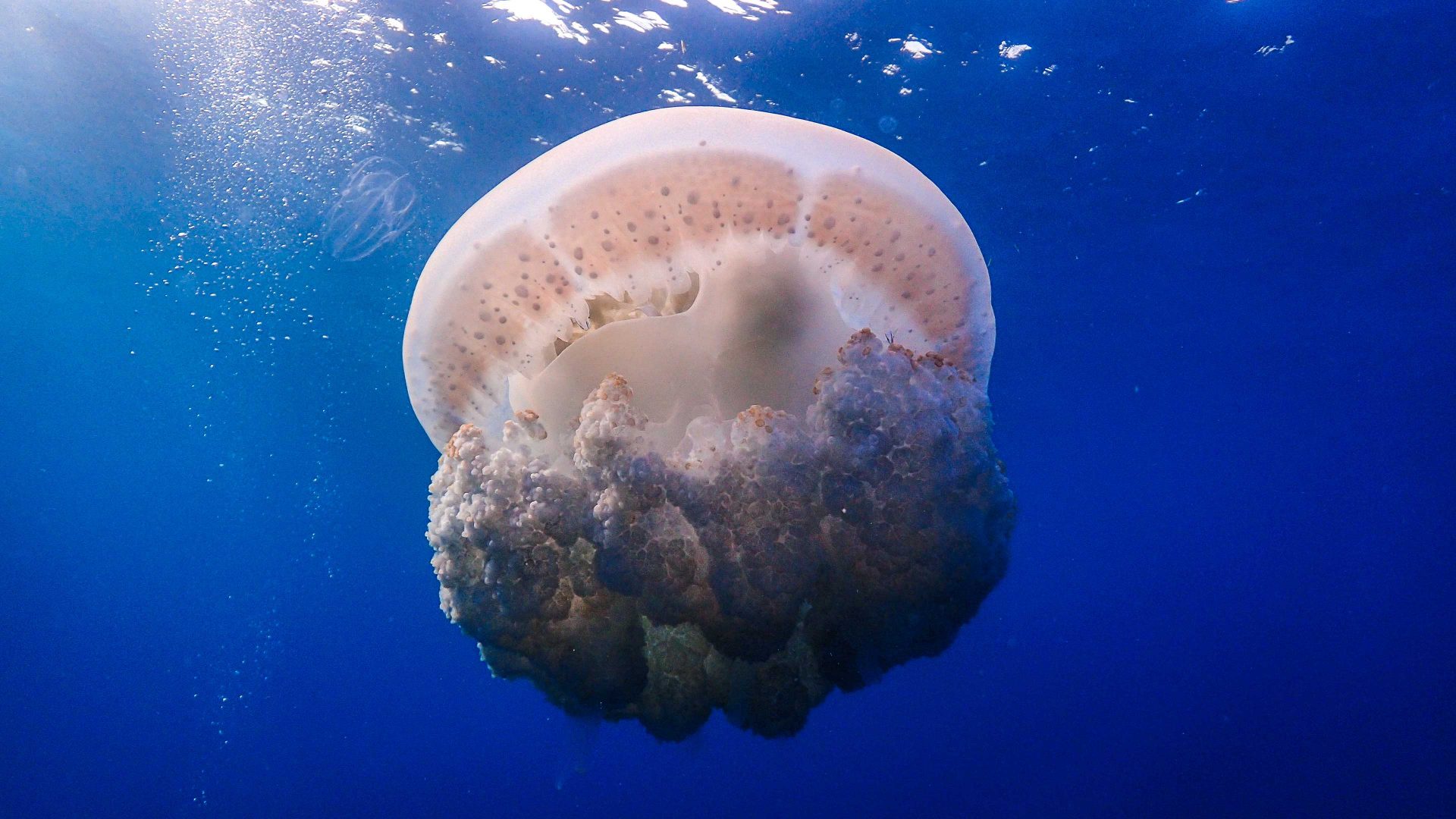It’s like a scene from a 1950s B-movie horror flick. In Barcelona and up the coast to the Costa Brava, the sea has been invaded by monsters, jellyfish the size of dustbins. Billions of them.
And they can be a little dangerous; my daughter was stung by one and had welts for several days where a monster had dragged its tentacles up her arm. A bit of allergy cream soothed the pain and calmed the rash, but others were less fortunate – some people have needed medical treatment.
Along the Catalan coast, 7,500 people were treated for jellyfish stings between May and August, an increase of 41% on last year.
The two main species of jellyfish found in these waters are relatively harmless, but stings can be more risky for people with weaker immune systems.
Medusas, as they call them in Spain, are always out there. We’ve lived in Barcelona for around a decade and we see them every year. Usually we just keep out of their way. We have never seen so many as we have this year, and we have never seen them so big.
My little boy and I were on the water on our paddle board and we tried to count all the sea monsters nearby – my girl, wisely, stayed safe on dry land. They’re such strange creatures: transparent white blobs with a blue-ish hoop at the base of their mushroom shaped “head”, and those evil trailing tentacles following behind.
Back on dry land, and overcome by a sort of daydream, I imagined these monsters multiplying and growing ever bigger, before gathering together into a gooey army and marching out from the ocean on to the beach, their flowing tentacles turned to limbs, stinging all the sunbathers.
Well, they haven’t stormed the beaches just yet, but clearly the medusas of the Mediterranean are thriving. I am no marine biologist, but while we were busy battling the medusas, Spain reported its hottest August since records began, with temperatures averaging 25C.
According to the AEMET meteorological agency, the average temperature was a fifth higher than the previous hottest Augusts of 2003 and 2023. And 2024 may also prove to be the country’s hottest overall year on record. The current record was for 2022, with an average temperature of 15.7C. Jellyfish thrive in these warmer conditions.
Overfishing of their natural predators plus man-made structures such as ports and breakwaters are also helping them out. Many of Barcelona’s beaches are also, in effect, man-made. A few decades ago the coastline was dominated by factories and shantytowns. Human activity and increasing population levels also reduce water quality.
Jellyfish are not just an issue on the Catalan coast. Near Cádiz, in the south-west, almost 100 tourists were treated for jellyfish stings. The local authority even now has a special flag to warn bathers of jellyfish.
I have been swimming with the jellyfish for years with no real dramas and no stings; but these monsters are much, much bigger than before, and there are loads of them. The jellyfish have clearly never had it so good.
Adrian Addison is a journalist based mostly in Barcelona



